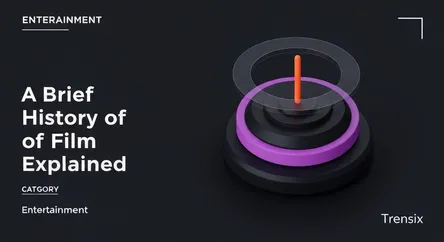Entertainment
A Brief History of Film Explained

Discover the evolution of cinema, from silent film pioneers to the digital blockbusters of today. Explore the milestones that shaped motion pictures.
What is it?
Film history is the study of the development of motion pictures, from early optical toys to the complex digital art form we know today. It chronicles the technological innovations, artistic movements, and cultural impact of cinema since its birth in the late 19th century. Key eras include the silent film period pioneered by figures like the Lumière brothers, the revolutionary arrival of synchronized sound in the late 1920s, the dominant Hollywood studio system's Golden Age, and various international movements like French New Wave and Italian Neorealism. The journey continues through the New Hollywood of the 70s to the current era of CGI and global streaming platforms, all marking significant shifts in how stories are told on screen.
Why is it trending?
Interest in film history is surging as audiences seek to understand the origins of modern filmmaking techniques and storytelling. Streaming services have made vast libraries of classic and international films more accessible than ever, encouraging viewers to explore beyond current releases. Furthermore, contemporary directors often pay homage to classic cinema, sparking curiosity about their influences. The restoration and re-release of old films in high definition also generate new buzz, allowing a new generation to appreciate these timeless works on modern screens.
How does it affect people?
Understanding film history enriches the movie-watching experience by providing crucial context. It helps viewers recognize cinematic language, appreciate the innovations of past filmmakers, and understand how movies have both reflected and shaped cultural attitudes, fashion, and social norms for over a century. It fosters a deeper appreciation for the art form, allowing people to see the lineage from a silent comedy short to a modern superhero epic. This historical knowledge connects audiences to a shared cultural heritage, revealing how the stories we watch are part of a long, evolving conversation.